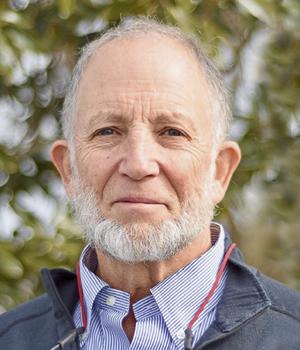In politics, as in life, facts and truth can vary widely
Back in about 1974, watermen in Queen Anne's County on Maryland's Eastern Shore were upset. They got wind of a plan by the state to place dredge spoils from a Baltimore harbor maintenance project in an area of shallow water just off Kent Island, north of the bay bridge.
The waters there produced rich and fast-growing stocks of soft-shelled clams, otherwise known as maninoes. People in the Chesapeake region didn't eat the clams much but there was a strong, year-round market in New England. (I was never partial to soft-shelled clams myself. Didn't find their chewy snouts or their soft bellies appealing.)
Using complicated hydraulic dredging rigs with conveyor belts, the watermen could fill 40 bushel baskets with clams - the legal limit - in short order. The rigs were tough on the boats, but the harvesting took little time and didn't require lots of expensive fuel.
The soft-shell clamming boom years didn't last for long, but many new boats and pickup trucks were paid off with those profits.
When word circulated that polluted dredge spoils were going to be deposited in the bay over the clam beds, blood pressures naturally rose.
I was a young journalist - a green journalist, you might say - working at the time for a weekly newspaper known as The Bay Times. The paper followed the commercial watermen, and their issues, closely.
When the president of the local clammers' association called me with his concerns, I put in a call to James Coulter, secretary of Maryland's Department of Natural Resources. It surprised me when he actually picked up his phone to take my call.
I told him I was doing a story on the state's plans to spread polluted dredge spoils on the beds. He listened patiently and then taught me one of the fundamental lessons of journalism that has stayed with me ever since.
"Who told you that is what we're planning?" he asked.
I told him the name of the man and his position.
"Well," he said, "none of that is true, we're not planning any such thing; in fact, we are planning to build a new island [Hart-Miller Island] outside the harbor where we will be able to place dredge spoils from the harbor for many decades to come."
I listened and he paused, maybe pondering the notion he was dashing this young reporter's hopes for a big story. He might have also sensed I was a little on the naive side.
"Dennis - that's what you said your name is, right?"
"Yes sir."
"Dennis, one thing you have to learn is that just because someone says something is true doesn't make it true."
I still wrote a decent story and in the process cleared up rumors that were causing unnecessary anxiety.
This was during the Watergate era when Richard Nixon was being impeached and eventually resigned the presidency.
A number of years later, a group of local journalists carpooled to Washington, D.C., to tour the newsroom at the Washington Post. Ben Bradlee, editor of the Post during the Watergate days, talked to the journalists about the difference between facts and truth. His words were akin to what Secretary Coulter had taught me.
"It's a fact," said Bradlee, "that President Nixon said he was not a crook. But, as the investigations eventually determined, what he said was not the truth."
Sometimes people lie. Sometimes people are just plain misinformed. One of the primary and critical roles of journalists in a free society, as watchdogs of government, is to separate fact from fiction so people can have good information to form their opinions and make decisions.
It's called getting to the bottom of the story.
Right now our nation is trying to sort out if, how and to what extent the Russian government meddled in the 2016 U.S. presidential election.It's a fact that Russian President Vladimir Putin told U.S. President Donald Trump that his nation did not interfere with the election. James Coulter's admonition is still in my ear. Time and further investigations at many levels may tell us whether what Putin says is actually the truth.
Dennis Forney is publisher of the Cape Gazette and can be reached at dennisforney@capegazette.com.




















































